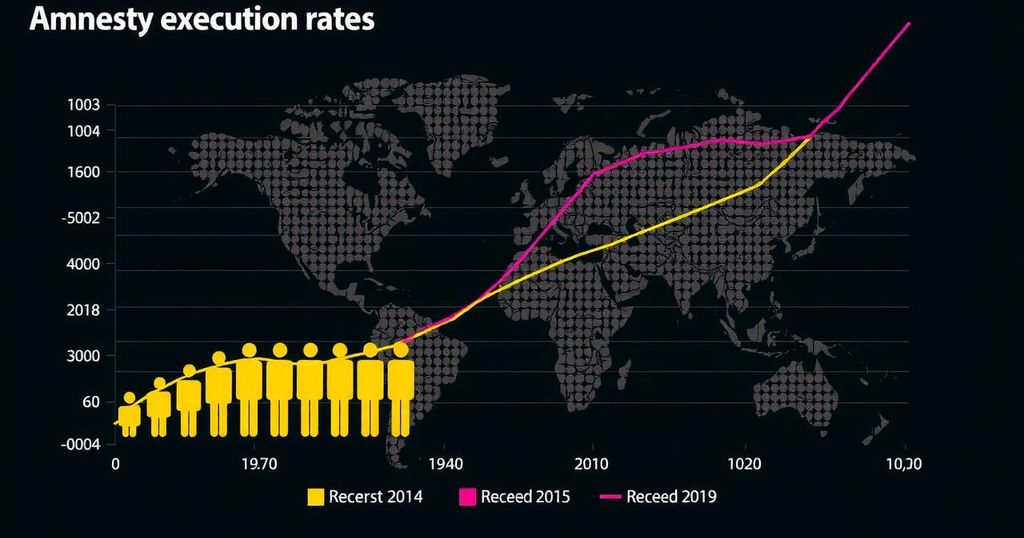Surge in Global Executions in 2022, Amnesty International Reports
Amnesty International’s 2022 annual report revealed a 53% global increase in executions, mainly driven by Iran and Saudi Arabia. Indonesia was noted for high new death sentences, particularly concerning drug offenses. The overall increase in executions occurred despite a global trend towards the abolition of the death penalty, with Transparency issues pervading several countries’ practices.
According to Amnesty International’s annual report released on Tuesday, the number of executions globally witnessed a staggering rise of 53% in 2022, compared to the previous year. This surge was particularly pronounced in Iran and Saudi Arabia, which accounted for the majority of these executions. In the Middle East and North Africa, approximately 70% of executions were conducted in Iran, where the tally saw an alarming 83% increase from 314 executions in 2021 to 576 in 2022. Meanwhile, Saudi Arabia experienced a threefold increase in executions, escalating from 65 in 2021 to 196 in 2022. In addition to these nations, other countries such as Kuwait, Myanmar, the Palestinian territories, Singapore, and the United States also reported significant increases in execution numbers. Overall, a total of 883 executions were documented across 20 nations, a rise from 579 executions recorded in 18 countries in the previous year. Amnesty International highlighted concerns regarding the lack of transparency and restrictive governmental practices that hinder a comprehensive understanding of the death penalty in several nations, including China, North Korea, and Vietnam. Particularly concerning was Indonesia, which recorded 112 new death sentences in 2022, 94% of which were related to drug offenses. These drug-related crimes are classified as non-intentional killings and thus do not conform to the international legal standard of “most serious crimes.” Indonesia, which maintains the death penalty for crimes such as murder, terrorism, and drug trafficking, has not executed anyone since July 2016, when four individuals were executed by firing squad at Nusa Kambangan prison.
The use of the death penalty remains a contentious issue globally, with Amnesty International advocating against it, citing human rights concerns. The rise in executions highlights not only the increasing use of capital punishment in certain countries but also raises alarms about the application of the death penalty for non-violent offenses, particularly drug-related crimes. Indonesia, a significant focus in this report, has been criticized for its relatively high number of new death sentences, predominantly linked to drug offenses. The report underscores the broader global context of capital punishment practices and the need for legal reforms and transparency in its application.
In summary, Amnesty International’s report sheds light on the alarming increase in executions worldwide in 2022, particularly in Iran and Saudi Arabia. The report indicates a troubling trend towards the application of the death penalty for non-violent offenses, with Indonesia notable for its high number of new death sentences related to drug offenses. The lack of transparency in several nations further complicates the global discourse on capital punishment. The rising figures prompt urgent calls for legal reforms and a reconsideration of the use of the death penalty in various jurisdictions.
Original Source: www.pbs.org




Post Comment